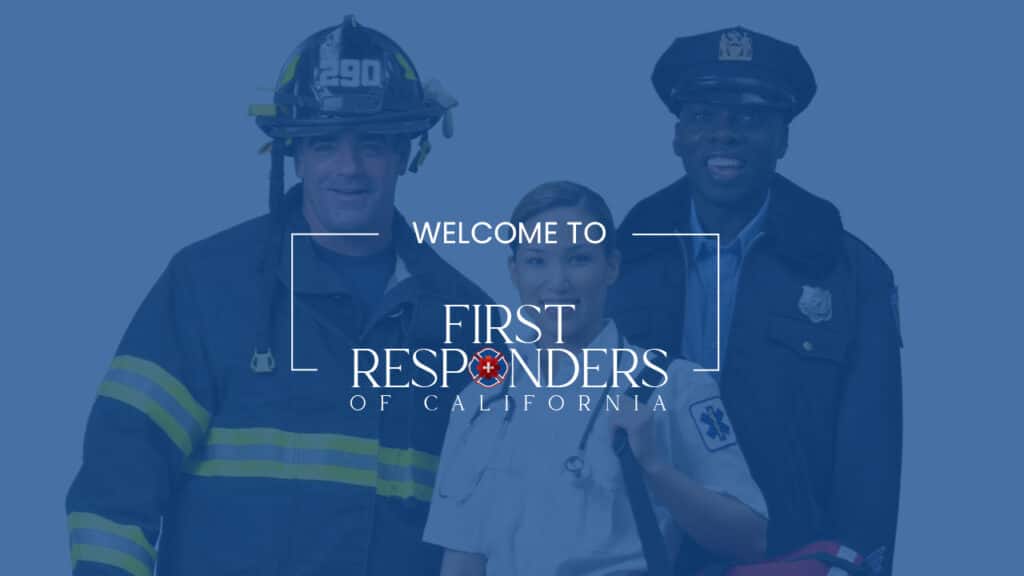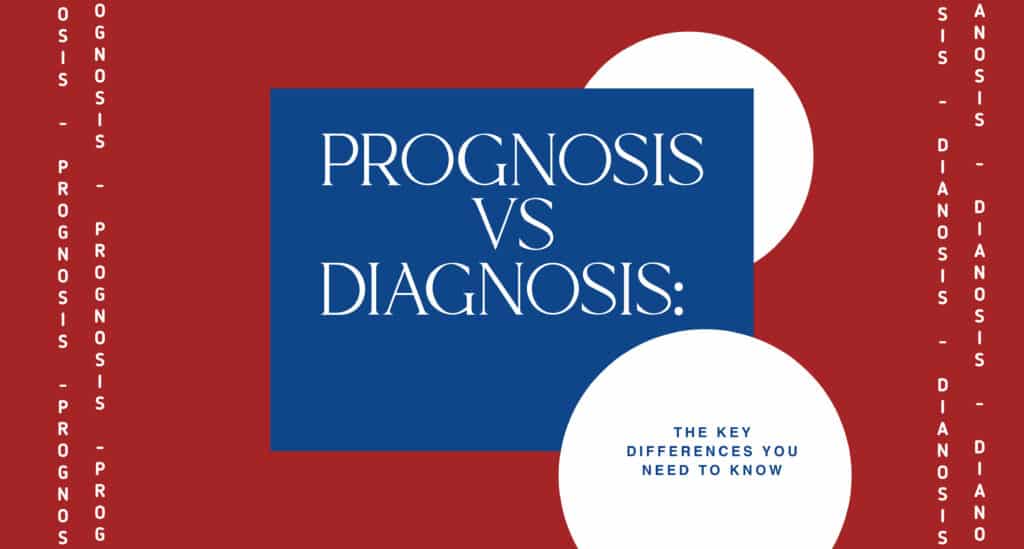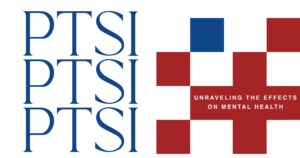Diagnosis and prognosis are standard terms in health and medicine, but what do these terms indicate? They have proximate-sounding words but are not similar regarding a patient’s experience or health. Diagnosis would mean identifying the condition, and the probable result of such a condition in the long run is the prognosis.
In this blog, we shall expound on these concepts, and you can see the difference and the significance of each within the medical care setting. Regardless of whether one is a patient, a caregiver, or a medical practitioner, understanding the critical difference will aid in making informed decisions about treatment and expectations.
Diagnosis: The First Step in Understanding a Medical Condition
Diagnosis refers to how medical practitioners recognize a disease or illness based on the symptoms, laboratory tests, and reviews. This is a good first approach to tackling any health condition.
How Symptoms Guide Diagnostic Evaluation
Diagnosis often starts when a patient walks in with a particular issue, e.g., pain, fatigue, or shortness of breath. Such symptoms will push medical professionals to make assessments, which may involve:
- Physical check-up
- Reviewing medical history
- Laboratory tests
- Imaging examinations
These tests enable the medical practitioner to get the information required to decide, determine, or diagnose a disease or disorder. Even a correct diagnosis may immensely help the patient’s future, provided it can be used to develop a workable treatment procedure.
First Responders of California
Prognosis: Looking Ahead at Possible Outcomes
While diagnosis examines the current condition, prognosis looks ahead to potential outcomes. It is a process that predicts the likely outcome of a disease. The diagnosis, the patient’s overall condition, and the body’s reaction to treatment form several factors that determine the prognosis.
Predictive Factors That Shape Prognostic Outlooks
A prognosis is dependent on a few factors, including:
- Age & gender
- Severity of the condition
- Comorbidities (other conditions that a person has)
- Response to initial treatments
- Patients overall lifestyle
For example, patients with the same diagnosis might have different prognoses, depending on the unfolding of the factors. Physicians consider these details in making informed decisions about treatment for disease development.
The Role of Assessment in Diagnosis and Prognosis
Assessment is also essential to diagnosis and prognosis as it establishes a patient’s development through constant evaluation of their health status. Frequent checkups enable healthcare providers to follow a condition’s progress, consider treatment plans, or determine a realistic expectation of recovery or long-term treatment.
The importance of periodic Evaluation:
- It gives an overview of the way a patient is reacting to therapy.
- It helps identify complications or changes in the patient’s condition early enough.
- It will assist healthcare providers in making timely changes to care plans.
Monitoring and Evaluation Techniques in Patient Care
It is essential to monitor the patient’s condition closely after a diagnosis has been made by conducting multiple assessments. These assessments help change treatment and determine future outcomes. The typical surveillance methods are:
- Routine Blood Tests are used to assess infection, certain organ functions, and overall health.
- Physical Check-ups. The regular visits can help monitor progress and well-being.
- Imaging Scans. X-rays, MRIs, and other scans allow for observing inner changes in health.
- Psychological Assessments. These could be used, particularly in the case of mental health issues, to measure emotional and psychological improvement.

The system of its regular assessment assists not only in diagnosing and prognosing but also helps to improve the way of its care and achieve the most adequate results in providing the patients with quality care. Such evaluation helps a medical professional to adjust treatment, understand progress, and enhance prognosis.
| Assessment Type | Purpose | Frequency |
| Routine Blood Tests | Check organ function, infection | Periodically |
| Physical Check-ups | Monitor physical health | Regular visits |
| Imaging Scans | Detect changes or complications | As needed |
| Psychological Assessments | Assess mental health progress | Regular evaluation |
First Responders of California
Treatment Planning Based on Diagnosis and Prognosis
Healthcare providers can prepare a treatment plan after establishing the diagnosis and prognosis. The plan will be tailored to the patient, and the intended results will be decided upon.
How Diagnosis Directs Intervention and Prognosis Informs Expectations
A diagnosis assists in the selection of the right treatments, e.g.:
- Medication
- Surgery
- Physical therapy
- Lifestyle modifications
The prognosis, on the other hand, informs patients of the treatment plan’s potential. For example, the prognosis might show that some illnesses are treatable and others need more serious treatment.
Prognosis vs Diagnosis: What Sets Them Apart?
Diagnosis and prognosis are crucial in determining a patient’s health, though they have various roles. Simply put, diagnosis and prognosis aim to answer what is wrong and what is likely to happen next.
A Clear Comparison of Purpose, Process, and Impact
| Aspect | Diagnosis | Prognosis |
| Purpose | Identify the medical condition | Predict the future course of the condition |
| Process | Based on symptoms, tests, and evaluations | Based on the diagnosis, health factors, and response to treatment |
| Impact | Leads to treatment planning | Helps set expectations and long-term care goals |
Knowledge and understanding of both can be applied in navigating healthcare, as they play distinct roles in patient care.
Key Differences You Need to Know at First Responders of California
At First Responders of California (FRCA), we understand that emergency service workers have unique needs. Learning about the distinction between prognosis and diagnosis can positively impact their care. It is essential for efficient care and informed mental and physical health decisions.
Contact FRCA now to find out more and receive personalized support.

First Responders of California
FAQs
What is the role of symptoms in diagnosing a medical condition?
The first information a health practitioner uses is symptoms, which help determine what tests to conduct and which evaluation to pursue. The diagnosis is based on these symptoms.
How does assessing a medical condition differ from the prognostic analysis of patient outcomes?
Assessment can be defined as continuous observation of the patient’s current state. Conversely, prognostic analysis helps determine the future course of the disease based on the factors involved.
In what ways can treatment plans be influenced by diagnostic evaluation and prognostic predictions?
The diagnostic assessment determines the condition and assists in clarifying the best treatment alternatives. The prognostic predictions are based on the diagnosis and aim to plan the treatment plan’s intensity, duration, and methods to align it with the expected results.
What factors are considered in predicting the outcome of a medical condition?
The prognosis of a condition depends on several factors, such as the patient’s age, severity, and overall health. Furthermore, the responses to initial therapies and associated illnesses also play a pivotal role in defining the disease pattern and the efficacy of subsequent treatment.
How is the monitoring of medical conditions essential to both diagnosis and prognosis?
Medical condition monitoring facilitates proper diagnosis of medical conditions, as monitoring of changes allows adjusting the treatment plan. It improves the prognosis by forecasting the future. Frequent tests give pragmatic patient care and performance.












